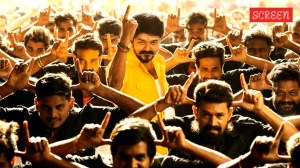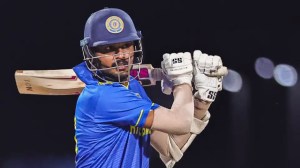The mark of a leader
On this day twenty years ago, the 8216;8216;woman of the millennium8217;8217; died in a volley of bullets. Just three days earlier, on t...

On this day twenty years ago, the 8216;8216;woman of the millennium8217;8217; died in a volley of bullets. Just three days earlier, on the very path where she was felled, her security guards had watched her bend down to pick up a flower and, running her fingers over the petals, place it tenderly aside so that no one would trample it.
At a morning gathering at No 1 Safdarjang Road one day, she came across an elderly man waiting patiently in the queue with a petition from AIR8217;s broadcasting staff. When he announced his name she asked, 8220;Are you 8216;the8217; Devakinandan Pande of Hindi Samachar?8221; His chest puffed up to learn that India8217;s Prime Minister had heard of him. That was vintage Indira, someone with an ear to the ground and empathy for the people.
Zulfiqar Ali Bhutto considered her a hated adversary, as noted by Henri Kissinger in Years of Upheaval. He wrote in the White House Years how 8220;Mrs Gandhi relentlessly pursued India8217;s national interest with single-mindedness and finesse. She and Richard Nixon were not intended by fate to be personally congenial8221;, adding 8220;8230; her bearing towards him combined a disdain for a symbol of capitalism8230; her moody silences brought out all of Nixon8217;s latent insecurities8230; Richard Nixon considered her a cold blooded practitioner of realpolitik8230;8221;
And, what of the other Iron Lady? Baroness Thatcher saw Indira Gandhi as being much more hard-headed than other Third World leaders. In her Downing Street Years she observed that 8220;her policies had been high-handed but only a strong figure with a powerful personality could hope successfully to rule India.8221; Indira left a deep impression on Andrei Gromyko, as recorded in his memoirs: 8220;8230; exhibiting enormous integrity, a clear mind and great firmness of character8221;.
Admiral Premvir Das, then a Midshipman, recounts how, onboard INS Mysore at sea, the PM dropped in to join the officers in the Ward Room. Someone was emboldened to ask her why they were not allowed to marry foreigners while her own son was about to do so. It is another matter, and indeed a matter of pride, that the distinguished spouse is a full-blooded Indian now. Indira Gandhi smiled, and said that it helped that her son was not in the Navy. That evening, with gentle persuasion, the prime minister joined the chorus in singing, 8216;Oh Susannah8230;8217;
Indira Gandhi so loved French, a language she learnt in school, that often she asked my French professor wife to come over to help her remain in touch. Once when my wife told her that she was going to take the family out to dine in the club because of an absent cook, the proud mother-in-law gave an engaging smile and said, 8216;8216;Why so? At such moments when we did not have help in the kitchen in 12 Willingdon Crescent, it was Sonia who helped us out.8221;
- 01
- 02
- 03
- 04
- 05































